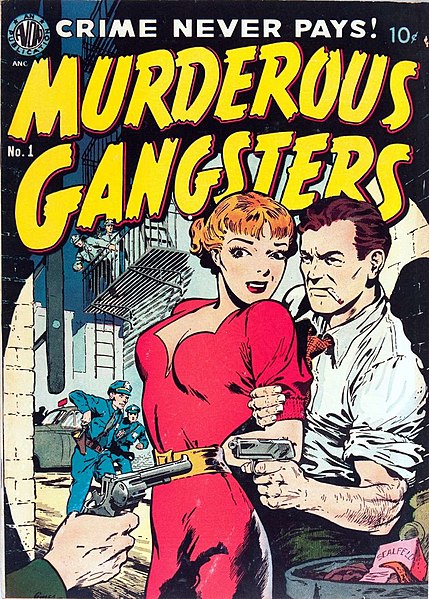In Katzev v. County of Los Angeles, 341 P.2d 310 (Cal. 1959), the California Supreme Court struck down a county ordinance that prohibited the sale or circulation of “crime” comic books. The court ruled that the law, which provided for up to six months’ imprisonment and a $500 fine, violated several First Amendment principles.
County of Los Angeles passed law prohibiting the sale of crime comic books
The county of Los Angeles passed the law with the intention of protecting minors from juvenile delinquency. In response, a group of magazine and book dealers filed a lawsuit in a California state court seeking a declaratory judgment that the ordinance was unconstitutional. A California superior court dismissed the lawsuit. On appeal, the California Supreme Court reversed, finding the ordinance fatally flawed.
California Supreme Court found the ordinance unconstitutional
In making its ruling, the state high court applied the U.S. Supreme Court’s clear and present danger test. It then concluded that a legislative body cannot prohibit a publication — even if it finds the publication “reprehensible” — unless it can show that the publication poses a clear and present danger. The California high court noted that the U.S. Supreme Court had ruled in Winters v. New York (1948) that publications about bloodshed and crime were entitled to as much First Amendment protection as other literature.
The court also declared the law to be unconstitutionally overbroad, because it would sweep within its ambit relatively innocuous material such as Bugs Bunny and Classic Comics. The ordinance was too vague as well, forcing distributors to guess at whether certain material was prohibited under the ordinance. Similarly, the law violated equal protection principles and failed “to establish a clearly defined standard of guilt.”
The decision remains an important precedent in the fight against comic book censorship.
David L. Hudson, Jr. is a law professor at Belmont who publishes widely on First Amendment topics. He is the author of a 12-lecture audio course on the First Amendment entitled Freedom of Speech: Understanding the First Amendment (Now You Know Media, 2018). He also is the author of many First Amendment books, including The First Amendment: Freedom of Speech (Thomson Reuters, 2012) and Freedom of Speech: Documents Decoded (ABC-CLIO, 2017). This article was originally published in 2009.

